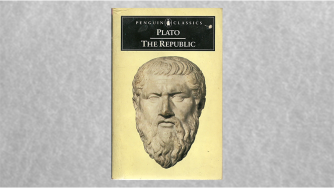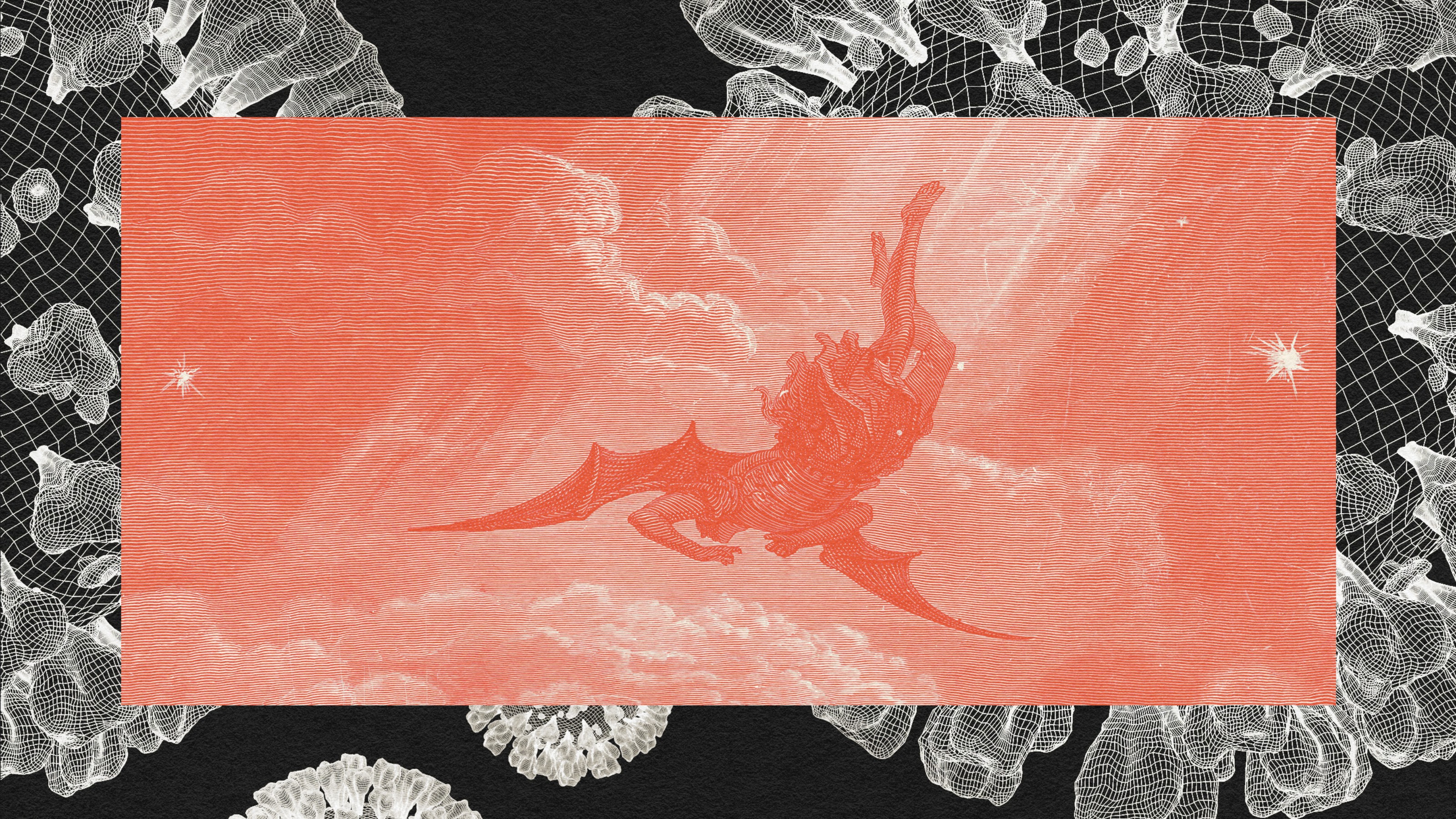- After thousands of years, and an infinite amount of novel experiences, there are today many dueling schools of philosophical thought.
- A great philosophical background takes into account a number of metaphysical positions and ideas.
- These 10 philosophy books all take on the questions of existence in a unique and varied manner.
There is an endless stream of philosophies to frolic in, play with, and explore. Countless ideas to live one’s life by and examine the world. To spurn philosophy is a tragedy, and to not open your mind to other realities and ideas a travesty.
After all, Socrates once said:
“The unexamined life is not worth living”
These 10 Western philosophy books will give you a diverse and wide-ranging understanding of metaphysical principles, as well as new ways to look at, and govern, your own life and mind.

The Republic by Plato
Plato’s The Republic was written in 380 BCE. It’s staged as a Socratic dialogue discussing justice of both an individual and the state. Socrates discusses the nature of justice and how it pertains to varying hypothetical cities and different classes of men. Written right after the Peloponnesian War, The Republic is one of the first forays of a Western philosopher applying philosophy to politics and it remains influential to this day.
“The heaviest penalty for declining to rule is to be ruled by someone inferior to yourself.”
It begins as a dialogue between Socrates and several young men pondering on the nature of justice as Socrates explains that if justice is in the interest of the strong then it shall lead to discontent and general disharmony in the city. Plato puts forth a compelling argument for what we need in a true ruler, which seems to have mostly gone unheard in the past two thousand years or so of governmental principalities and leaders — the philosopher king.
“The society we have described can never grow into a reality or see the light of day, and there will be no end to the troubles of states, or indeed, my dear Glaucon, of humanity itself, till philosophers become rulers in this world, or till those we now call kings and rulers really and truly become philosophers, and political power and philosophy thus come into the same hands.”

Meditations by Marcus Aurelius
If there was ever such a man who met the philosopher-king ideal, it would be Marcus Aurelius. Meditations is a one of a kind book. As it is the private thoughts of one of the world’s most eminent and wisest man to ever have ruled. Emperor of the Roman Empire from 161 to 180, his death would bring about the end of the Pax Romana.
Trained as a stoic philosopher, Marcus documented his private thoughts in matters of personal advice he gave himself on how to rule and what it meant to be in his position. Every night the Emperor would practice spiritual exercises so that he could be strong in whatever he would face in his responsibilities of ruling. If this advice worked for the leader of the most noble and strongest empire of antiquities, then it’ll work for whatever minute issues you may be facing in your life. The book is filled with quotable lines everywhere.
“I have often wondered how it is that every man loves himself more than all the rest of men, but yet sets less value on his own opinion of himself than on the opinion of others.”

Nicomachean Ethics by Aristotle
As one of the three central greats of Greek and Western moral philosophy, Aristotle introduces new guiding terminology and methods in the Nicomachean Ethics. Namely, the question of what does it mean to live a good and fulfilling life. He uses the term eudaimonia, which was a term that can be translated to either mean happiness or faring well. It is something that should be strived for in the sum total of a person’s life.
“One swallow does not make a summer, neither does one fine day; similarly one day or brief time of happiness does not make a person entirely happy.”
Both a study in individual achievement and political life, Aristotle doesn’t confuse fulfilment and living well with a positive psychological state devoid of suffering or strife. Over the 10 books, eudaimonia is the central guiding force in a rich philosophical experience.

The Enneads by Plotinus
Plotinus was one of the last and greatest philosophers of antiquities. Considered to be part of the Neoplatonic school of thought, his views in The Enneads would be a precursor to the Enlightenment, the Renaissance and some heretical Christian sects. He had much in common with the Gnostics and other mystics.
“Before we had our becoming here, we existed There, men other than now; we were pure souls. Intelligence inbound with the entire of reality, not fenced off, integral to that All… Then it was as if One voice sounded. One word was uttered and from every side an ear attended and received and there was an effective hearing; now we are become a dual thing, no longer that which we were at first, dormant, and in a sense no longer present.”
Plotinus believed that if we could leave our limited and parochial view of ourselves and reality, then we would find ourselves in the macrocosm and in the great beyond.

Beyond Good and Evil by Friedrich Nietzsche
In this book, Friedrich Nietzsche, not one for complacency, boldly goes into an attack and critique on much of the history of philosophy, challenging ancient notions many people and philosophers took for undeniable truths at that time. He wants to create new ideals and goals for an era of what he terms “new philosophers.”
“It has gradually become clear to me what every great philosophy up till now has consisted of — namely, the confession of its originator, and a species of involuntary and unconscious autobiography; and moreover that the moral (or immoral) purpose in every philosophy has constituted the true vital germ out of which the entire plant has always grown.”
This scathing critique of traditional morality would set the stage for some of Nietzsche’s more profound ideals. He argues to do away with the moral proselytizing and non-life affirming useless moral actions and instead give a higher credence to things like the imagination, self-overcoming and the pursuit of excellence in the nobleness of mankind. Beyond Good and Evil lays the framework for a new system of self-sufficiency for the higher types and does away with a universal system of morality.

The Problems of Philosophy by Bertrand Russell
One of the greatest works of early 20th century philosophy, Bertrand Russell’s 1912 book is an introduction to his line of thinking and to philosophy in general. Russell was first and foremost an empiricist and that meant starting with the most fundamental question of them all: is there any kind of knowledge that is absolutely and irrevocably true.
“Philosophy, though unable to tell us with certainty what is the true answer to the doubts which it raises, is able to suggest many possibilities which enlarge our thoughts and free them from the tyranny of custom. Thus, while diminishing our feeling of certainty as to what things are, it greatly increases our knowledge as to what the may be; it removes the somewhat arrogant dogmatism of those who have never travelled into the region of liberating doubt, and it keeps alive our sense of wonder by showing familiar things in an unfamiliar aspect”
This was where the real work of philosophy began. Russell covers topics ranging from the ontology of reality, what matter really is, inductive reading and the limits of philosophical inquiry.

The Wisdom of Insecurity by Alan Watts
Alan Watts, the great Buddhist sage had a whimsical and philosophical grasp on a number of subjects. The Wisdom of Insecurity is more important than ever in today’s fast-paced world, where the future is the constant worry and the connection with the present moment has been severed.
Watts’s main concept is one of mindfulness, rooted in the Eastern notions of being present in whatever one is doing at the time. Although this was written in 1951, Alan Watts understood that much of human frustration and anxiety is due to our tendency to want to live for the future or in some other kind of abstraction without truly being in the now.
“Tomorrow and plans for tomorrow can have no significance at all unless you are in full contact with the reality of the present, since it is in the present, and only in the present, that you live. There is no other reality than present reality, so that, even if one were to live for endless ages, to live for the future would be to miss the point everlastingly.”
Watts posits that this problem stems from our self-induced neurosis, which he believed permeates all of our waking hours — as well as our incessant anxieties that muddle the whole purpose of being, which is just to be.

A Treatise of Human Nature by David Hume
David Hume’s comprehensive book was an attempt to create a new philosophy based on an observationally motivated study of human nature. It an important text in 18th century philosophy. Hume talks at length about cause and effect, human conflicts, and the many passions and freedoms that collide in a human society.
“We make allowance for a certain degree of selfishness in men; because we know it to be inseparable from human nature, and inherent in our frame and constitution. By this reflexion we correct those sentiments of blame, which so naturally arise upon any opposition.”

Civilization and its Discontents by Sigmund Freud
Freud is ever the philosopher in this book. Civilization and its Discontents is an incredible summary on his views of culture from a psychoanalytic perspective.
Written the decade before his death and published in 1929, Freud extrapolates on his views about the broader question of humankind’s place in the world, which he sees as a place of utter conflict between the individual and that of civilization’s need for conformity.
Freud believes that civilization does not work for the individual. Man, is naturally an aggressive, egotistical beast that seeks its own way and that it is culture that subjects and represses this natural state. The result is guilt and a whole slew of other issues.
“The commandment, ‘Love thy neighbor as thyself’, is the strongest defense against human aggressiveness and an excellent example of the unpsychological [expectations] of the cultural super-ego. The commandment is impossible to fulfill; such an enormous inflation of love can only lower its value, not get rid of the difficulty.
Civilization pays no attention to all this; it merely admonishes us that the harder it is to obey the precept the more meritorious it is to do so. But anyone who follows such a precept in present-day civilization only puts himself at a disadvantage vis-a-vis the person who disregards it. What a potent obstacle to civilization aggressiveness must be, if the defense against it can cause as much unhappiness as aggressiveness itself! ‘Natural’ ethics, as it is called, has nothing to offer here except the narcissistic satisfaction of being able to think oneself better than others…”

The World as Will and Idea by Arthur Schopenhauer
Like the many philosophers that came before him, Schopenhauer was drawn to philosophize because of the inherent wonder and strangeness he saw in the world. Yet, he stated that this was not due to any benevolent or humanitarian impetus. No, he thought the world was a dreadful place:
“Not merely that the world exists, but still more that it is such a miserable and melancholy world, is the tormenting problem of metaphysics.
Schopenhauer sought to lay bare the truth on the nature of the world, no matter how miserable it might be. In doing so, he would provide consolation for those humans who dare listen. Schopenhauer truly believed that he had hit upon the truth of the world.
Subject to the limitation of human knowledge, my philosophy is the real solution of the enigma of the world.






